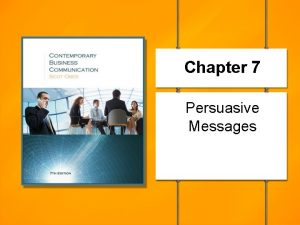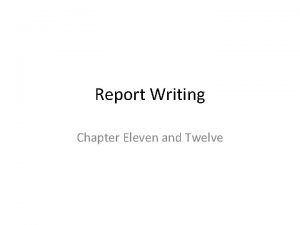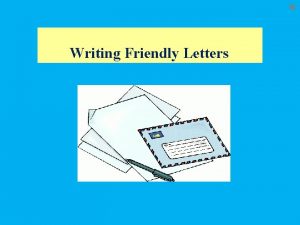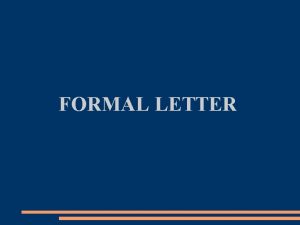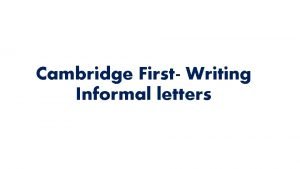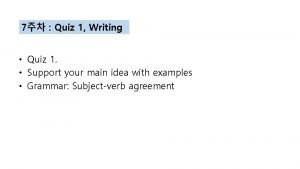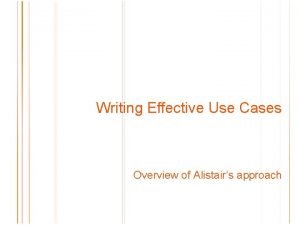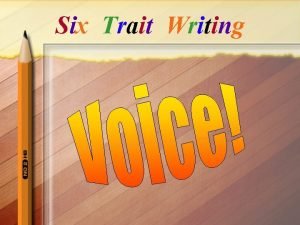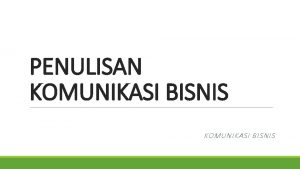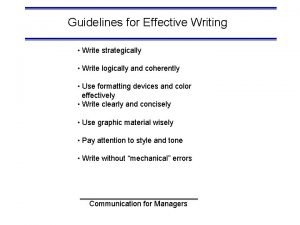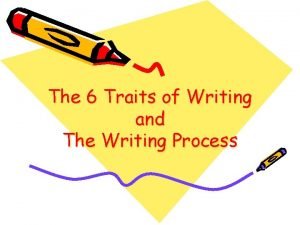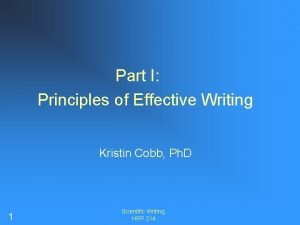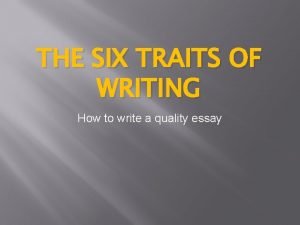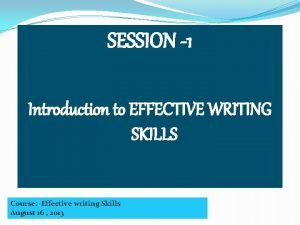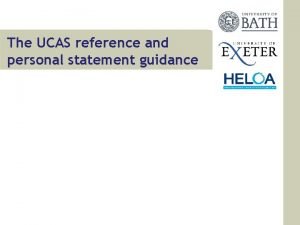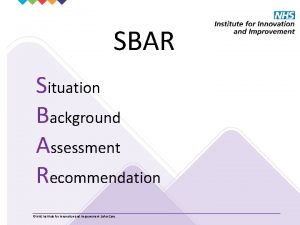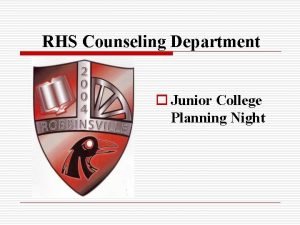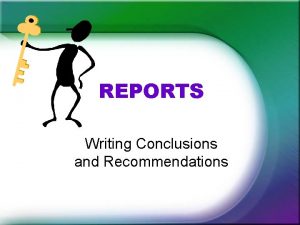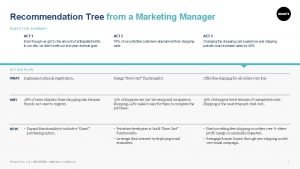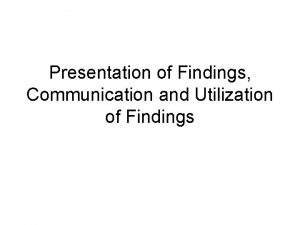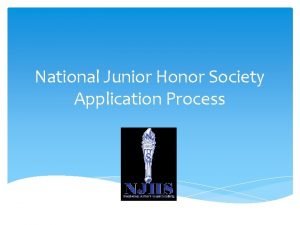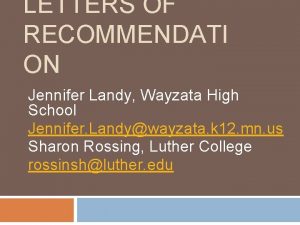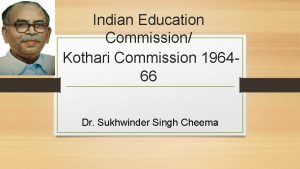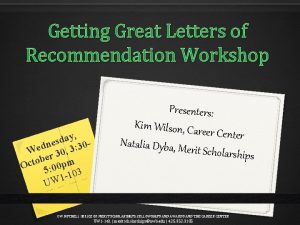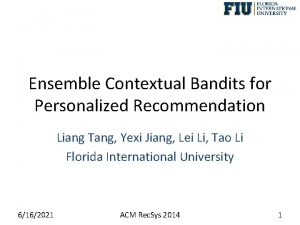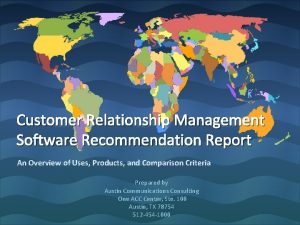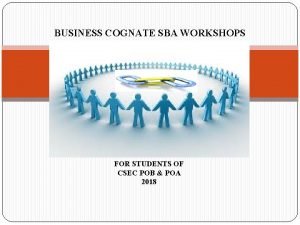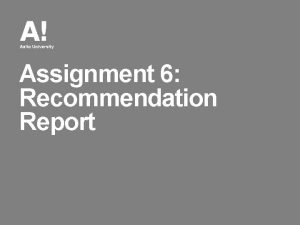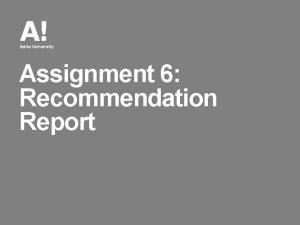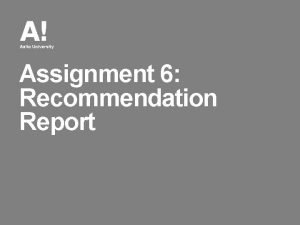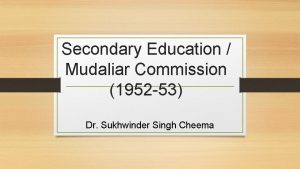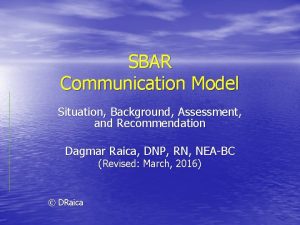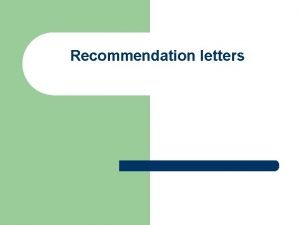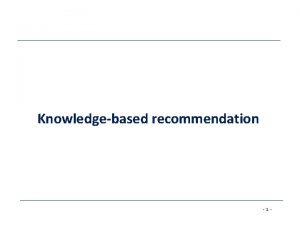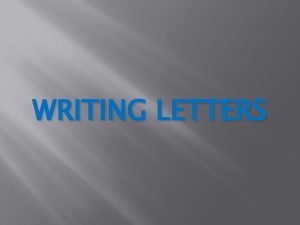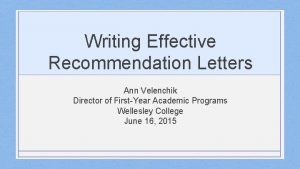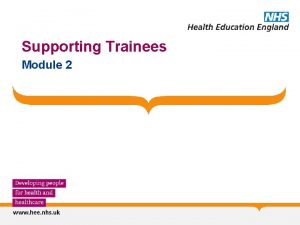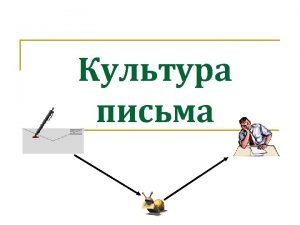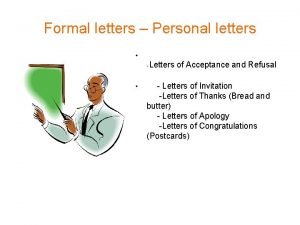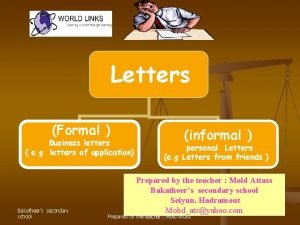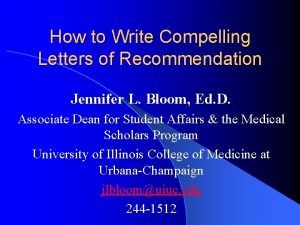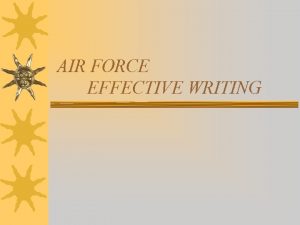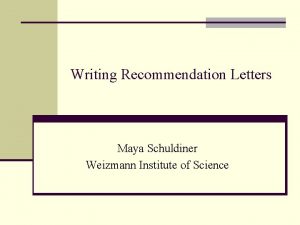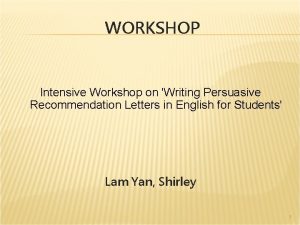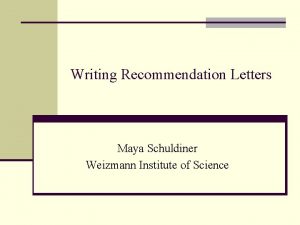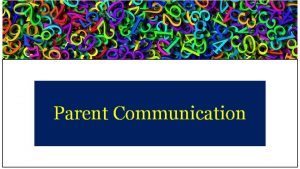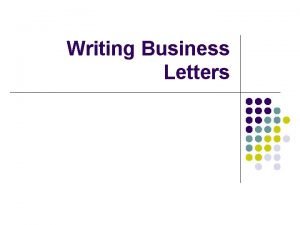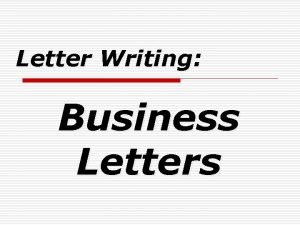Writing Effective Letters of Recommendation of Trainees Jennifer














































- Slides: 46

Writing Effective Letters of Recommendation of Trainees Jennifer Kogan, MD Ilene Rosen, MD Barbara Wagner, MS

Objectives 1. Describe your responsibility when writing a Lo. R. 2. List essential features that should be present in a Lo. R. 3. Describe common mistakes to avoid when writing a Lo. R. 4. Tailor a Lo. R based on performance level.

What types of letters of recommendation are you asked to write?

What are your greatest challenges writing letters of recommendation?

Fantasy Land of Lo. R “ A wondrous place. . . Where people have excellent interpersonal skills and about a tenth of the inhabitants are among the finest I have ever worked with, and almost all are in the upper quarter. ” Friedman RB. Fantasy land. N Engl J Med. 1983; 308: 651 -3

Lo. R Problems • • • Expectations not defined No agreement on the adjectives Inherent selection bias Reliability and validity dubious Shortened exposure to trainees

Objectives 1. Describe your responsibility when writing a Lo. R. 2. List essential features that should be present in a Lo. R. 3. Describe common mistakes to avoid when writing a Lo. R. 4. Tailor a Lo. R based on performance level.

What is Your Responsibility • Trainee • Reader • Institution/Recruitment • Society/Profession • Yourself

Stakeholder Trainee • Reader • Institution/ Recruitment Society/Profession Yourself • • • Responsibility Help advance as far as s/he can go Provide useful data to select best/ appropriate candidate Help get learners to best places possible Gatekeeper to patient safety Honesty/integrity and your reputation

Writing the Letter • Lo. R – Constructive criticism NOT required/expected – Acceptable to include your subjective opinions more than you would in an evaluation • Evaluation letter or reference letter – Balanced letter expected

Getting Started • Commit enough time • Meet with the candidate • Review candidate’s CV/personal statement – Talk about their accomplishments • • • Know what they are applying for/career goals Decide if it’s letter you feel comfortable writing Read sample letters Ask for feedback on your letters Don’t ask learners to write their own letter

Objectives 1. Describe your responsibility when writing a Lo. R. 2. List essential features that should be present in a Lo. R. 3. Describe common mistakes to avoid when writing a Lo. R. 4. Tailor a Lo. R based on performance level.

Three Important Components • Assessment of learner’s strengths – Based on first hand experience • Assessment of future performance • Applicant’s distinguishing features

Essential Features • • Formal approach Careful word selection Honest/authentic Specific, objective data Information you would want to know Relevant and germane skills/characteristics Short and clear Fair/in good faith Larkin GL. Acad Emerg Med. 2001; 8: 70 -3 Wright SM. JGIM. 2004; 19: 588 -93

Format Instructions Use official letter head Address letter (e. g. “Dear XXX”) Include student’s AAMC ID and ERAS letter ID Ensure learner’s/candidate’s name spelled correctly throughout • 1 -1 1/2 pages • Sign letter (sign printed copy and scan or use electronic signature) • Save as PDF • •

Paragraph 1: Provide Context Applicant’s name in first line Purpose of the letter Who are you? How do you know the trainee? – In what capacity did you work together? – For how long? – What were key learner responsibilities? • Did trainee waive right to read letter? • •

Paragraph 1: Example It is with utmost enthusiasm that I write I have been asked to write this letter of recommendation on behalf of Ima Star who is applying for an Internal Medicine It is with great pleasure that I residency. I have been a rheumatologist for 15 years and write fellowship director for 5. I have worked with Ima for two weeks during her Rheumatology elective during her fourth year of medical school. During this elective, Ima independently evaluated and presented two new consults daily in addition to two follow-up presentations. She also worked with me in the office on multiple occasions. As such, I feel as though I am able to accurately comment on her capabilities. Ima has waived her right to view this letter.

Paragraph 1: Example I have been asked to write this letter of recommendation on behalf of Ima Star. I have been a rheumatologist for 15 years and fellowship director for 5. I have worked with Ima for two weeks during her Rheumatology elective during her fourth year of medical school. During this elective, Ima independently evaluated and presented two new consults daily in addition to two follow-up presentations. She also worked with me in the office on multiple occasions. As such, I feel as though I am able to accurately comment on her capabilities. Ima has waived her right to view this letter.

Family Educational Rights & Privacy Act (FERPA) • Federal law (1974) protects privacy of student education records • Applies to students at all schools receiving funds under an applicable program of the U. S. Department of Education • Gives students the right to consent to disclosure of any part of their “educational record” by the educational institution or one of its employees

FERPA and Lo. R • Lo. R are considered an education record if – faculty writes letter in role as faculty member – letter is about student’s tenure at school • Provides students with right to access Lo. R and complete applicant file

Waiving FERPA • Majority of schools/programs ask (some require) trainees to waive access to Lo. R • Once waived, trainee has no right to review Lo. R • Explicitly state in your letter trainee has made written waiver • No specific laws applicable for residents/fellows – BUT: most programs/employers prefer trainee waives right to review letter

Paragraph 2: Most Relevant Skills • Clinical letter – Medical Knowledge – Intellectual ability – Patient care skills – Analytic skills – Technical skills • Research letter – Skill formulating research question – Ability to select methodology – Data collection and interpretation skills – Scientific writing – Grant funding

Paragraph 3: Other Relevant Attributes • • Interpersonal skills Professionalism/Integrity Character Work ethic/attitude to learning/initiative Sense of responsibility Communication skills Personality Leadership skills

Remember Be specific Quantify and compare Address requirements of the position Personal attributes/special interests that make candidate unique • Beware of what you leave out • •

Use Impact Words What words do you like to see in a letter?

Use Impact Words Efficient Highly organized Effective Confident Self-assured Articulate Observant Dedicated Committed Motivated Empathic Humanistic Mature Sincere Leader Integrity Intelligent Team player Collaborative Enthusiastic Shows initiative Self- directed

Paragraph 4: Summary • • • Summarize overall findings Repeat unique favorable attributes Bottom line recommendation (quantify if can) Overall fit for the position/institution/program Offer for contact

Example Compared to the other students I have worked with in my 15 years as an attending on the consult service, Ima is outstanding (top 10%). I wholeheartedly recommend her to your residency program without any reservations. Please do not hesitate to contact me if you desire additional information.

Secret Language of Clinical Letters • • • Rank Words Outstanding Excellent Very good Good Solid Appropriate for level of training Recommend • Wholeheartedly • Enthusiastically • Without reservation • With confidence • With pleasure • With comfort • Strongly • With reservation • Do not recommend

Don’t Forget to Edit!!! • Keep it to 1 ½ pages • Proofread and spell check – Especially pronouns (ask) • Re-read for gender bias

Gender Bias • Length • Emphasis – Women: strong work ethic/ training/ teaching – Men: research and ability • Adjectives – Men standout: superb, outstanding, remarkable – Women: minimal assurance – Gender stereotype: lovely, compassionate, nurturing Trix and Psenka (2003)

Objectives 1. Describe your responsibility when writing a Lo. R. 2. List essential features that should be present in a Lo. R. 3. Describe common mistakes to avoid when writing a Lo. R. 4. Tailor a Lo. R based on performance level.

Common Mistakes: Letters that Hurt

Common Mistakes: Letters that Hurt • List wrong specialty/position being applied for • Too short or too long • No specific examples • Gender bias • Reiterate information available elsewhere • Excessive focus on how the writer knows applicant without describing accomplishments

Common Mistakes: Letters that Hurt • Mention age, race/ethnicity, marital status, children, physical characteristics • Personal anecdote • Struggles

Objectives 1. Describe your responsibility when writing a Lo. R. 2. List essential features that should be present in a Lo. R. 3. Describe common mistakes to avoid when writing a Lo. R. 4. Tailor a Lo. R based on performance level.

Troubleshooting the “Problem Letter”

Say No • Cannot write letter positive enough to be helpful • Have little/no recollection of applicant – NOTE: Can be remedied by • Keeping copy of all evaluations • Keeping copies of presentations • Face to face • Don’t have time

When You Can’t Write A Great Letter • Disclose beforehand • Limit criticism to one paragraph late in letter • Phrase criticism affirmatively

When You Can’t Write A Great Letter • Note impressive improvements/response to feedback “ Over the course of his time with me, Justin developed more sophisticated differential diagnoses and plans for his patients. ” “It took a while for Justin to get his research projects started, but he now has an oral abstract and a poster presentation, and I think going forward he will make important contributions to the field. ” • Focus on what was accomplished (EVEN if accomplishments were expected) “Justin was punctual and always read about his patients. ”

When You Can’t Write A Great Letter • Highlight previous successes – Repeat details from CV/academic record • Put interpersonal skills (3 rd paragraph) as 2 nd paragraph for more academically weak candidates

Examples “Her teaching will improve once she gains a higher level of confidence…. ” “His fund of knowledge will improve as he continues to read about his patients…. ” “I’m confident that her interpersonal skills will improve as she gains more experience working on a team…. ” “He readily accepts and incorporates feedback regarding his need to work on…. ”

Legal Perspectives • Don’t disclose information without written permission • Ask trainee to waive right to access • Only share factual, truthful statements made in good faith • Never disclose private (i. e. medical) information • Review negative comments to make sure they are accurate and factual

Top 10 List for Effective Letters 1. 2. 3. 4. 5. 6. 7. 8. 9. 10. Authentic: based on 1 st hand knowledge Honest: accurate; avoid exaggeration or hyperbole Relevant: describe important skills/attributes Specific: provides examples to support praise Confidential: avoid unnecessary disclosure Appropriate detail /length Technically clear: avoid unnecessary jargon Use the right code words Personalized: Tailor comments for the applicant PROOFREAD, PROOFREAD!!

Questions

Practice Ima Star 1. Read each LOR 2. Use worksheet to list LOR strengths/flaws 3. Revise LOR Justin Soso
 Write sky grass and root letters
Write sky grass and root letters Unlike routine claims, persuasive claims:
Unlike routine claims, persuasive claims: Recommendation in report writing
Recommendation in report writing Greeting friendly letter
Greeting friendly letter Formal greetings in spanish for a letter
Formal greetings in spanish for a letter Formalletters
Formalletters Informal letter cambridge
Informal letter cambridge By letter meaning
By letter meaning Friendly letter greeting
Friendly letter greeting English
English Frankenstein letter 1 summary
Frankenstein letter 1 summary Writing a formal letter of complaint
Writing a formal letter of complaint The class (describes describe) their vacations
The class (describes describe) their vacations Writing effective use cases by alistair cockburn
Writing effective use cases by alistair cockburn Voice trait of writing
Voice trait of writing Principles of effective writing
Principles of effective writing Principles of effective writing
Principles of effective writing Effective writing style
Effective writing style 6 traits writing
6 traits writing Effective writing examples
Effective writing examples Six traits of effective writing
Six traits of effective writing Introduction to effective writing
Introduction to effective writing Recommendation for waste management
Recommendation for waste management Ucas reference examples for teachers
Ucas reference examples for teachers Singular value decomposition for recommendation systems
Singular value decomposition for recommendation systems Hexiangnan
Hexiangnan Sbar tool
Sbar tool Letter of recommendation brag sheet
Letter of recommendation brag sheet Volunteer protection conclusion
Volunteer protection conclusion Recommendation for marketing manager
Recommendation for marketing manager Presentation of findings
Presentation of findings Njhs what do you do
Njhs what do you do Wayzata high school letter of recommendation
Wayzata high school letter of recommendation Aims of indian education commission 1964-66
Aims of indian education commission 1964-66 Recommendation letter for workshop
Recommendation letter for workshop Recommendation slide template
Recommendation slide template Contextual bandits for personalized recommendation
Contextual bandits for personalized recommendation Recommendation for customer relationship management
Recommendation for customer relationship management Business sba topics
Business sba topics Bcg matrix history
Bcg matrix history Recommendation assignment
Recommendation assignment Recommendation assignment
Recommendation assignment Example recommendation for assignment
Example recommendation for assignment Defects of secondary education commission
Defects of secondary education commission Sbar
Sbar Sample peer letter of recommendation
Sample peer letter of recommendation Recommender relationship
Recommender relationship

